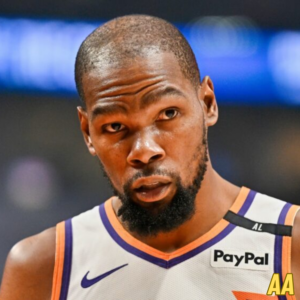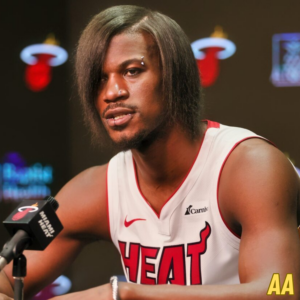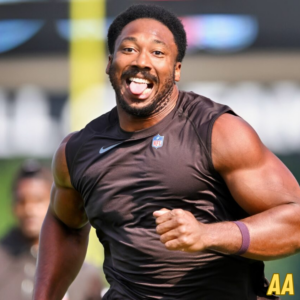Cari Champion is disgusted with critics shaming Caitlin Clark’s comments about Black WNBA players: “Conservatives do one of two things … either they whine or bully”
After months of relative calm in the WNBA, Caitlin Clark has reignited the conversation surrounding the league—and, as always, it’s impossible to ignore her impact. From her historic draft day-shattering viewership records to her electrifying playoff debut that drew unprecedented audiences, the Indiana Fever guard has remained at the forefront of WNBA discussions. Now, her comments on race, privilege, and acknowledgment of Black players have sparked widespread debate.
Award controversy
Fresh off her extraordinary rookie campaign, Clark was named Athlete of the Year by Time Magazine this week. This recognition capped a whirlwind year for the two-time NCAA champion, who made headlines for her dazzling play and off-court reflections.
It stirred a mix of admiration and backlash. Sheila Johnson, co-owner of the Washington Mystics, publicly questioned whether the point guard’s contributions warranted such acclaim. Meanwhile, conservative commentator Megyn Kelly launched a sharp critique on social media, accusing the rookie of pandering during her award interview.
Yet, American broadcaster Cari Champion emerged as her staunchest defender, condemning the uproar as another example of conservative double standards.
“All she’s simply saying is, ‘I want to respect those who come before me,” Champion said. “Now conservatives do one of two things. I am so fascinated with this, especially when it comes to her; either they whine or they bully. So now is the time to do both; they are bullying her when she decides to just like a post.”
In her acceptance speech, the 22-year-old guard credited the WNBA pioneers, many of whom were Black women, with paving the way for her opportunities. She also emphasized the importance of addressing privilege in sports, acknowledging how her race plays a role in her prominence—but it seems not everyone interpreted it that way.
Privilege and race
The WNBA has long been a league dominated by players of color—60% of its athletes are African American. Despite this, CC, a white rookie, has become one of its most marketable stars, landing endorsements and drawing massive audiences. She has also paved the way for the other athletes, and the spat she is receiving has been called “jealousy and envy.”
When the Fever star was on the brink of securing a landmark eight-figure Nike deal, it raised questions about the lack of similar opportunities for established stars. A’ja Wilson, a three-time MVP and cornerstone of the Las Vegas Aces, announced her Nike shoe deal only months later, highlighting disparities in recognition and marketability.
“She’s acknowledging the reverse DEI that nobody wants to talk about. She has a privilege; she’s been in this league for a year, and she makes more money than the people who built this league, and she understands that there’s a reason, not because she shoots the ball well—yes, that also helps, but there’s another reason, there’s a reason that says, ‘I’m white, and it’s a privilege people love me, and I’m okay with that, and I’ll also acknowledge everyone else; why is she being bullied?” Champion said.
The league’s 2024 season only underscored the guard’s influence. It was the WNBA’s most-watched regular season in 24 years, drawing 2.35 million fans—its highest total attendance in over two decades. The Fever rookie was central to the surge, with three games exceeding 20,000 attendees featuring Clark.
The Iowa product herself has maintained a balanced perspective. She recognizes her status as an exceptional player but is equally committed to advocating for the Black athletes who built the league. Her efforts to bridge that gap have made her a target of criticism.
News
Breaking: An executive order prohibiting transgender people from playing women’s sports is about to be signed by Donald Trump.
BREAKING: Donald Trump Set To Sign Executive Order Banning Transgenders From Participating In Women’s Sports On February 5, 2025, President Donald Trump signed an executive order titled “Keeping Men Out of Women’s Sports,” which prohibits transgender girls and women from…
Regarding Donald Trump’s intentions to attend Super Bowl 59, Travis Kelce expresses his feelings rather clearly. tt
Travis Kelce Makes His Feelings Very Clear On Donald Trump’s Plans To Attend Super Bowl 59 It looks like Travis Kelce is taking a diplomatic and professional approach, focusing on the magnitude of the Super Bowl rather than any political…
With a massive trade proposal, the Phoenix Suns set the NBA on fire by trading superstar Kevin Durant to a Western Conference heavyweight. tt
Phoenix Suns Set The NBA On Fireworks By Dealing Superstar Kevin Durant To Western Conference Heavyweight In Massive Trade Proposal That trade proposal is definitely a blockbuster and could shake up the Western Conference in a huge way. If the…
BREAKING: Buffalo Bills All-Pro Superstar Makes Shocking Retirement Announcement After Team’s Heartbreaking Playoff Loss To Chiefs. tt
BREAKING: Buffalo Bills All-Pro Superstar Makes Shocking Retirement Announcement After Team’s Heartbreaking Playoff Loss To Chiefs Buffalo Bills helmet (Photo by Patrick Smith/Getty Images) Former Buffalo Bills star safety Micah Hyde is walking away from the game after an 11-yer career in…
Jimmy Butler of the Miami Heat was acquired by the Dallas Mavericks in a blockbuster trade proposal, once again stunning the NBA. tt
Dallas Mavericks Stun The NBA Again By Acquiring Miami Heat Superstar Jimmy Butler In Blockbuster Trade Proposal As of February 5, 2025, the Dallas Mavericks have not acquired Miami Heat’s All-Star guard Jimmy Butler. However, the team has been active…
Myles Garrett makes a wild, blockbuster trade proposal to join the NFC team with a dynamic quarterback. tt
Myles Garrett Heads To NFC Team With Dynamic QB In Wild Blockbuster Trade Proposal On Monday, February 3, 2025, star defensive end Myles Garrett requested a trade from the Cleveland Browns, expressing his desire to compete for and win a…
End of content
No more pages to load












